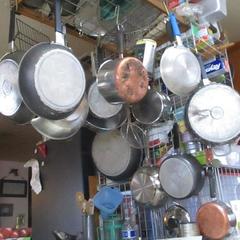-
Welcome to the eG Forums, a service of the eGullet Society for Culinary Arts & Letters. The Society is a 501(c)3 not-for-profit organization dedicated to the advancement of the culinary arts. These advertising-free forums are provided free of charge through donations from Society members. Anyone may read the forums, but to post you must create a free account.
Salted Pasta Water: How Much Salt.
-
Similar Content
-
- 9 replies
- 1,031 views
-
- 4 replies
- 508 views
-
- 78 replies
- 19,596 views
-
- 0 replies
- 258 views
-
- 341 replies
- 96,594 views
-
-
Recently Browsing 0 members
- No registered users viewing this page.






Recommended Posts